By: Peter S. Alfino, Level II USAT coach, Owner Mile High Multisport, LLC
The off season is where the greatest improvements in your fitness can be gained if you take the correct approach during your off season. What you do and don’t do right now will go a long way in how you race when it counts. My experience has shown that most triathletes don’t make the right decisions at this time of year to help them make improvements down the road. Get adequate rest and a solid preparation phase before beginning your base building phase of training. So how do you know what to work on?
REST :
There has to be a period of significant rest between your last key race and your preparation period. I’m not talking taking two days off. If you haven’t given both your body and your mind a period of rest and rejuvenation you will end up injured or flat at some point in the future. How long to rest and recover depends on your tenure in the sport, how long your last season lasted and what was the impact on your body and mind from you last race of the season. Adding that one last race of the season i.e. I just did a full Ironman so I might as well jump into this half two weeks post race or I might as well run that marathon 4 weeks later, is common amongst those people new to the sport. That last race typically pushes you over the edge. Know when to call it a season and avoid the temptation to keep adding races to an already long and rigorous season. Significant rest means 4 weeks at minimum of structured training and possibly more. During this time you can do some light activity such as short 30 minutes swim sessions, hikes or shorter bikes up to an hour. Intensity should be limited and you should spend the majority of your time in zone 1.
PREPARATION PHASE :
When you start back with a formal plan you need to allow 4-6 weeks for the muscles to adapt back to a routine. Emphasis should be on lower intensity and form should be emphasized over duration or intensity. Now is the time to really think about range of motion and improving form in all disciplines. It is a great time of year to start working on your limiters.
• Strength training: you broke down a lot of muscles during the race season. Time to build strength. Not only will this help you with power but this will aide you in preventing injuries.
• Yoga/Pilates: Great time of year to incorporate Yoga or Pilates into your routine. Improved strength, flexibility and symmetry
• Pool: Time to focus on improving your stroke, body position, kick and arm turnover. Get videotaped and work with a reputable coach. Join a masters program
• Running Drills: Drills and speed skills at this time of year produce improved running economy. Shorter more frequent runs versus fewer longer runs
• Cycling Drills: Speed skills such as spin ups, higher cadence work, ILT’s,( Isolated Leg Training) improve your cycling efficiencies. Sessions on the trainer are shorter although if the weather cooperate there is nothing wrong with a long slow ride in zone 2.
So this off season get rest, slow down, analyze your form and incorporate the necessary work to make improvements when you don’t have the pressure of getting fast for an upcoming race. If you can be patient, your chances of making physiological gains next race season have just improved.
Peter S. Alfino is the owner of Mile High Multisport, LLC. He is a level II USAT certified coach based on of Highlands Ranch Colorado. Contact him at Pete@milehighmultisport.com


